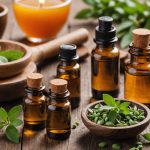Understanding the Risks of Household Cleaning Products During Pregnancy
Navigating pregnancy safely involves understanding the potential risks of household cleaning products. Common products like bleach, ammonia, and detergents can contain chemicals that may affect pregnancy safety. These substances often include solvents and surfactants, which are designed to break down dirt and grime but can also lead to chemical exposure during prolonged use or misuse.
Chemical exposure during pregnancy is particularly concerning as certain compounds found in these products may have the potential to harm the developing fetus. Inhalation or skin contact with these chemicals can lead to respiratory issues or skin irritation, underscoring the importance of cautious usage.
To mitigate these risks, it’s crucial to carefully examine product labels and safety data sheets. These documents provide essential information about the chemical composition of cleaning products. They can guide you in choosing safer alternatives. Consider products specifically labeled as safe for pregnant individuals or opt for those that use natural ingredients to reduce potential health risks.
Adopting these practices promotes pregnancy safety while maintaining a clean environment. Prioritising informed decisions regarding cleaning product choices is a step forward in protecting both your health and that of your child.
Topic to read : Essential Guide for Expecting Mothers in the UK: Effective Ways to Track Blood Sugar Levels and Reduce Diabetes Risk
Safe Cleaning Practices for Pregnant Women
Ensuring safe cleaning practices during pregnancy is crucial to minimise risks. One essential strategy is to maintain proper ventilation. This means opening windows or using exhaust fans to allow fresh air to circulate, thereby reducing the inhalation of potentially harmful substances. Moreover, wearing protective gear, such as gloves and masks, adds an extra layer of protection.
Implementing cleaning safety tips is another vital step. Opt for natural and non-toxic cleaning products whenever possible. These products tend to have fewer irritants and are generally safer for both the mother and the unborn child. It’s equally important to adhere to pregnancy precautions by avoiding cleaning chemicals that emit strong fumes or require prolonged exposure.
Reducing exposure can be further achieved by adjusting the frequency of cleaning. For example, instead of daily deep cleans, consider light daily maintenance with occasional intensive cleaning. Timely cleaning, such as tackling tasks when someone else is present to alleviate the workload, can also be beneficial.
By following these guidelines, pregnant women can maintain a clean, safe environment while protecting their and their baby’s health.
Recommended Cleaning Products
Pregnant women often seek non-toxic alternatives to protect themselves and their babies from harmful chemicals. Choosing appropriate cleaning agents is crucial for maintaining a safe home environment. Safe cleaning products typically involve green cleaning options that are free from hazardous compounds. These products not only secure health benefits but also contribute to an environmentally friendly household.
The benefits of using eco-friendly and non-toxic cleaning options are manifold. By avoiding harsh chemicals, these products help minimize respiratory problems and skin irritations. They often incorporate biodegradable ingredients, which lessen the environmental footprint. Many of these products also have natural scents, reducing the risks linked to synthetic fragrances.
When identifying safe products, pregnant women can look for specific certifications and labels. Certifications like ECOCERT, Green Seal, and Safer Choice indicate compliance with safety and environmental standards. Examining product ingredients and avoiding those with phthalates, parabens, and formaldehyde is essential. Transparent ingredient lists, often found on reputable green products, aid in making informed decisions.
By prioritising available alternatives and certifications, one can confidently navigate the realm of safe cleaning products, ensuring both personal well-being and a healthier planet.
Legal Regulations and Guidelines in the UK
In the UK, cleaning products regulations are formulated to ensure safety for consumers, encompassing various policies overseen by governmental bodies. These chemical safety laws safeguard public health by mandating that household cleaners align with stipulated standards. One primary legislative framework is the UK REACH Regulation, which controls the use of chemicals widely present in cleaning products.
Understanding health guidelines during pregnancy is crucial, as exposure to certain chemicals may pose risks. Health authorities like the NHS recommend using cleaning products that are well-ventilated and avoiding those with intense fumes or chemicals known to impact pregnancy negatively. The guidance aligns with broader chemical safety laws to mitigate any potential health risks.
Legal requirements dictate that all cleaning products in the UK must feature specific labeling to inform consumers adequately. This includes ingredient lists, usage instructions, and potential hazards. Labeling and safety information are not merely suggestions but legal obligations for manufacturers. This ensures consumers are well aware of how to safely use these products and the potential risks involved, fostering a safer environment for all users, especially for expecting mothers.
Recommendations from Health Professionals
Understanding the importance of pregnancy safety guidelines can significantly ease expectant parents’ concerns when choosing cleaning products. Health professionals, such as obstetricians, often emphasize the need to consult healthcare providers before introducing new products into a daily routine. This advice ensures both safety and peace of mind.
Health organizations and experts point out that not all cleaning products are created equal. Certain chemicals may pose risks during pregnancy, necessitating clear expert advice on what to avoid. To ensure a safe environment, professionals generally recommend opting for products that are free from harsh chemicals and emphasise using natural or organic alternatives whenever possible.
Besides personal advice from your healthcare provider, there are other recommended resources for additional guidance. Trusted sources, such as the Centers for Disease Control and Prevention (CDC), provide comprehensive guidelines on maintaining a clean living environment during pregnancy. By carefully following these guidelines, expectant parents can better navigate the complexities of maintaining a healthy home.
In essence, balancing day-to-day household chores with pregnancy safety involves integrating health professional recommendations into your decisions. By doing so, you create a supportive home setting for both the expectant mother and the developing baby.
Practical Tips for Managing Your Home Environment
Creating a safer home environment during pregnancy is essential for the well-being of both the mother and the child. One of the most effective home safety tips is to identify and remove potential hazards. Ensure that household cleaning products are stored out of reach or replaced with eco-friendly alternatives. This reduces the risk of harmful chemical exposure.
A well-thought-out cleaning regimen is vital, especially during pregnancy. This might involve delegating certain tasks. Consider assigning duties that involve heavy lifting or harsh chemicals to others. Incorporate natural cleaning solutions like vinegar, baking soda, and lemon. These are effective yet gentle alternatives to commercial products loaded with chemicals.
Effective household management involves a collaborative approach. Discuss and establish a cleaning schedule with family members to evenly distribute responsibilities. This not only helps maintain a clean and safe household but also alleviates stress for expectant mothers.
Organizing cleaning responsibilities can significantly limit exposure to potentially harmful substances. Emphasize on using protective gear, like gloves, when necessary, and ensure rooms are adequately ventilated during cleaning sessions.
Through deliberate actions and conscientious choices, managing a household amid the demands of pregnancy can become a safer, cleaner, and more harmonious experience.
FAQs on Cleaning Products and Pregnancy
Pregnancy brings many inquiries, particularly about the safety of cleaning products. Many common questions focus on how cleaning affects pregnancy and how to manage certain products. Product safety inquiries often arise as families seek to ensure the health of both mother and child.
A universal concern is whether everyday household cleaners pose risks. Generally, it’s advisable to avoid products with strong fumes or harsh chemicals, such as bleach or ammonia. Opt for safer alternatives like vinegar and baking soda.
Frequently, people ponder the myth that all cleaning during pregnancy is harmful. This is not true. With appropriate precautions, cleaning remains generally safe. Wear gloves, ensure good ventilation, and avoid mixing chemicals.
Handling specific cleaning tools and scenarios can also raise concerns. Those involving heavy lifting or extensive standing should be approached with caution. It’s wise for pregnant women to take breaks and ask for help when needed.
Such common concerns highlight the importance of addressing misconceptions and equipping expectant mothers with knowledge. Answering their questions with clarity and confidence aids in navigating this important time with assurance.











